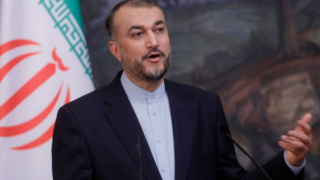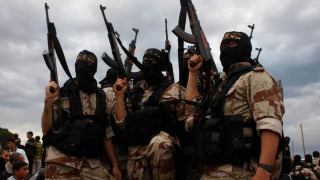See also
18.02.2023
De beweringen van Washington dat de nieuwe leider van al-Qaeda*, Saif al-Adel, zich momenteel op Iraans grondgebied bevindt, zijn belachelijk, aldus...
05.04.2024
Het door de Taliban geleide Islamitische Emiraat van Afghanistan heeft de terroristische aanslag in het stadhuis van Crocus in Rusland scherp...
27.01.2022
IS-terroristen hebben een dodelijke aanval uitgevoerd op de door Koerdische separatisten beheerde gevangenis in de stad al-Hasakah in Noord-Syrië om...





